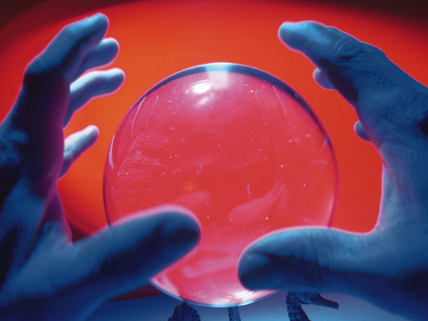After you saw the final results from the November 6 election, did you say, “Yup, I knew it would turn out like that”? Did you really? A common psychological phenomenon called “hindsight bias” may have convinced you that you had predicted the outcome, when you actually had not done so. Hindsight bias is “a tendency to change an opinion from an original thought to something different because of newly provided information.”
A theory about hindsight bias proposes that it occurs when people selectively retrieve memories that help them make sense of a situation and, at the same time, make them feel good about themselves. Hindsight bias affects us in our daily lives and can affect how experts in many fields interpret their past opinions. For example, a historian may write that a battle’s outcome was inevitable, even if his earlier prediction did not say so. Or, a doctor may say that she knew a certain treatment would work, even if she had been far from sure when she prescribed it.
Academic investigation into hindsight bias is not new. Although the effect had been noticed before, study began in earnest in the 1970s, when psychologists asked test subjects to recall their predictions for Richard Nixon’s visit to China and the USSR. Since then, many scholars have examined the process. A recent study emphasizes an important corollary: hindsight bias changes how you see your role in the world. People who succumb to hindsight bias can start to think that they are really smart and really good at figuring out in advance what is going to happen. Another hazard of hindsight bias is thinking that a bad outcome was inevitable and that one cannot therefore be blamed for failing to prevent it.
So, the next time you’re tempted to say, “I knew it all along,” reexamine your earlier opinion and fess up. Maybe you didn’t.
Image credit: © Comstock/Jupiterimages/Getty Images
Related Links
- Hindsight Bias? “He Won the Vote? I Knew It All Along”
Examine hindsight bias in the world of politics.
(Source: Austin American Statesman, November 3, 2012) - Did You Know It All Along?
How did test subjects fall prey to hindsight bias in studies of the military and common proverbs? Read it here in this book excerpt.
(Source: Ohio State University; accessed November 30, 2012) - Why Hindsight Can Damage Foresight
Hindsight bias doesn’t just fracture the past; it can also hinder our futures.
(Source: Foresight: The International Journal of Applied Forecasting, May 2010) - Hindsight Bias
This extensive article provides the history of hindsight bias studies and examines the phenomenon’s connection to other mental conditions.
(Source: Wikipedia; accessed November 30, 2012)





lol